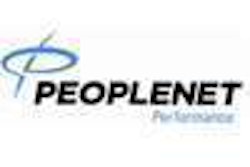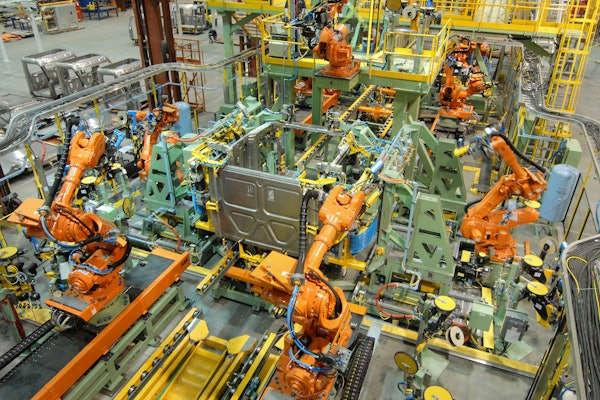Kodiak, TopKick production to end by August
General Motors announced June 8 that it has decided to wind down its medium-duty truck operations after four years of working with multiple potential buyers, including Navistar International Corp. GM, which had filed for Chapter 11 bankruptcy protection the previous week, says production of the Chevy Kodiak and GMC TopKick medium-duty trucks at the company’s plant in Flint, Mich., will cease by July 31. The factory also makes Chevrolet Silverado and GMC Sierra pickups, as well as medium-duty trucks for Isuzu Motors.
While sudden, the announcement hardly was surprising given GM’s severely troubled financial situation and the fact that it previously had tried to offload the business. In December 2007, Navistar tentatively agreed to buy GM’s medium-duty truck business, including certain assets and rights to manufacture GMC and Chevrolet brand vehicles. Navistar had planned to sell those vehicles and related parts through GM’s North American dealer network.
GM and Navistar never finalized the deal, however, and on Aug. 20, 2008, the companies announced that owing to “significant marketplace and economic changes” they had decided not to renew their memorandum of understanding. At the time, GM vowed to continue the medium-duty business as it had in the past, including providing sales, service and marketing support to GM dealers for its medium-duty trucks. Meanwhile, the company said it would continue to review strategic options for the business, including continued discussions with Navistar.
CCJ Test Drive:
Roush Ford F-150 Propane Pickup
Livonia, Mich.-based Roush is better known as an aftermarket supplier of high-performance powertrains. But now the company has turned its attention to helping fleet owners realize lower fuel costs with the introduction of its propane-powered Ford F-150 pickup truck. Roush says fleets running propane pickups realize cost savings from 5 to 30 percent compared to gasoline models, depending on the application. And that’s before recouping government tax credits, which can run as high as 50 cents a gallon burned.
Livonia, Mich.-based Roush is better known as an aftermarket supplier of high-performance powertrains. But now the company has turned its attention to helping fleet owners realize lower fuel costs with the introduction of its propane-powered Ford F-150 pickup truck. Roush says fleets running propane pickups realize cost savings from 5 to 30 percent compared to gasoline models, depending on the application. And that’s before recouping government tax credits, which can run as high as 50 cents a gallon burned.
Driving a Roush F-150, it was surprising how unremarkable the experience was. I don’t mean that in a bad way: Simply put, the propane conversion kit under the F-150’s hood provided power and performance virtually indistinguishable from a conventional gas-powered F-150. In fact, apart from a 3-second wait when cranking (to pressurize the fuel injection system), you’d be hard-pressed to tell any meaningful difference performance-wise between a conventional pickup and the Roush version.
The most striking difference was the large 50-gallon propane tank mounted behind the four-door cab. The tank eats up a large chunk of bed space, but is necessary since propane lacks the power density of gasoline; the truck doesn’t get the fuel economy you can expect from a gas truck, and the larger tank is required to approximate the vehicle range of a regular F-150. Roush says it is working on an integrated fuel tank that will restore much, if not all, of the bed’s available storage space.
During my week of test drives, I averaged 10.2 miles per gallon in the Roush F-150. That’s not a great number compared to a gasoline truck. On the other hand, I was paying only $1.33 for a gallon of propane when filling the truck up, compared to gasoline priced at about $2 a gallon during the same time – and that was before factoring in the 50 cents-per-gallon tax credit. Also, although the propane infrastructure is well-developed in the United States, filling the truck up is not as simple as pulling into a service station and swiping your credit card.
There are many factors to compute before determining if a propane-powered truck is right for your business. But to my mind, for fleets that have a ready supply of propane on hand for other vehicles and applications, a propane-powered pickup truck is a good fit. There are absolutely no performance problems with Roush’s system, and provided you have a convenient source of propane available, its reduced range and fuel economy are offset enough by the lower cost of U.S.-produced propane and the associated tax credits to make propane an attractive alternative fuel for energy-conscious pickup fleets.
– Jack Roberts
Freightliner develops hybrid hazmat M2e
Truck features Eaton parallel electric hybrid system
Freightliner Trucks, together with Eaton Corp., announced the development of a Freightliner Business Class M2e Hybrid truck equipped with an Eaton hybrid electric drivetrain system. Created for Pennington Gas Service, this truck marks the first application of the Eaton parallel electric hybrid system to a hazardous material delivery application.
Pennington Gas Service delivers propane primarily to residential customers in Michigan, Ohio and Indiana.
In Brief
Mack Trucks employees represented by the United Auto Workers ratified a new 40-month Master Agreement covering about 1,700 UAW members at seven facilities in three states. The new agreement will expire on Oct. 1, 2012.
Arrow Truck Sales last month announced a four-year/400,000-mile comprehensive engine warranty option on pre-owned units. Arrow says its warranty includes full coverage — not just major components — during the entire four-year period and is available on 2005 and newer Volvo VNLs with less than 500,000 miles.
Denso Corp. and Robert Bosch GmbH agreed to discontinue their joint development activities for diesel particulate filters by the end of 2009.
Continental’s new ContiTread – a retread product manufactured by Marangoni with the same rubber compounding, tread designs and fuel-saving technologies as new Continental tires – will be available in the United States and Canada for fleet customers through current Continental and MTNA dealers.
Kalyn Siebert, a Heil Trailer International subsidiary, made the Air-Weigh trailer scale standard on its heavy-haul trailers. The trailers will include a factory-installed Air-Weigh trailer scale with an LED overweight warning light.
Waltco Hydraulic Liftgates will merge with Ultron Lift Corp. Both liftgate companies are members of the Hiab Division of Cargotec Corp.
FleetPride, an independent aftermarket distributor of heavy-duty truck and trailer parts, opened a new 110,000-square-foot regional distribution center in Visalia, Calif., that will service the heavy-duty transportation market in the western United States.










